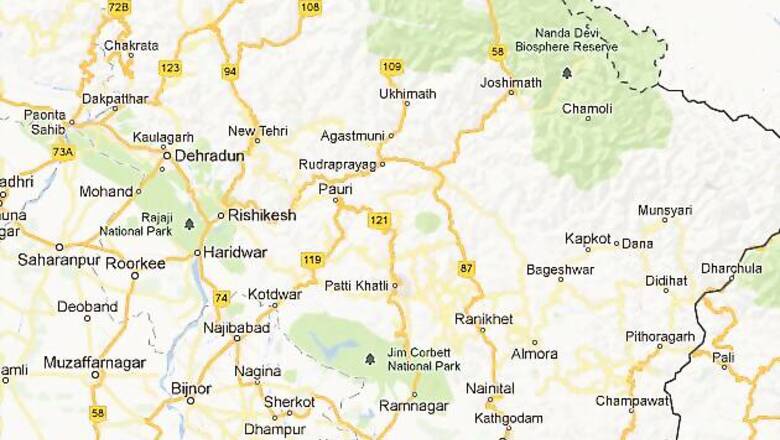
views
Smarting under the effects of an unprecedented natural calamity in June, the Uttarakhand government is working on a Rs 9,000-crore action plan to minimize the impact of climate change in the state.
The plan was presented on Tuesday by the State Council for Climate Change to chief secretary Subhash Kumar, who approved it and asked officials to give final touches to it within ten days, with inputs from all departments. It will be then sent to the Centre for approval, official sources said.
Under the plan, Rs 80 crore would be spent on works in the agriculture sector. This will involve improvement of soil health in the plains, and conservation of soil and water in the hills. Integrated farming, rained agriculture will be promoted, and "Village Knowledge Centres" will be established for a group of villages, they said.
There will also be pre- and post-harvest management, crop insurance, marketing and technical support, they said.
To promote forest and bio-diversity, Rs 832 crore will be spent on increasing the number of trees, improving the condition of degraded forests and increasing their density, along with management of human-wildlife conflict.
Work will be done to increase fodder availability for animal husbandry, 19 nurseries would be set up, and quality of veterinary hospitals would be improved.
As part of disaster management, Rs 369 crore are needed for study of climate parameters, community-level planning, threat perception, management of all important water reservoirs, rehabilitation of endangered villages and study of socio-economic conditions in remote areas.
A sum of Rs 104 crore will be spent on human resource related issues such as green buildings, integrated behavioural change, increase in mobile emergency vehicles and skill development. Under urban development, all urban bodies would be provided solid waste management facility, sewage treatment, pollution control projects, along with planned development and rainwater harvesting.
Rs 108 crore will be spent on water resources under which a state water policy would be formulated, along with catchment area treatment, flood control and preventing misuse of water.
Studies will be conducted on bearing capacity of tourist destinations, responsible and balanced tourism development, as well as people's involvement. Similarly, work would be done in areas of energy, roads and transport in the backdrop of environmental change.




















Comments
0 comment